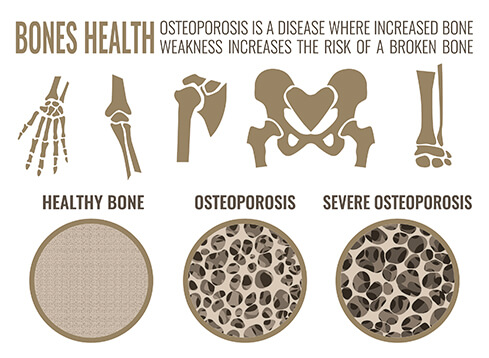Menopause is a condition when body stops producing female hormones and thus causing women to have symptoms that include night sweats, hot flashes, anxiety, sleep disturbances, mood changes, cognitive changes, vaginal dryness, pain during sexual intercourse and urinary problems. The treatment of menopause focuses on improving these signs and symptoms that are associated with hormonal changes and preventing or managing chronic conditions that may occur with ageing (osteoporosis, increased risk of cardiovascular disease and breast cancer). Queens Gynecology provides the best hymenoplasty clinic in Delhi. Our doctors are highly experienced to provide these hymenoplasty surgeries.

The most effective treatment option for menopausal flashes is hormonal therapy. The hormones are given after the detailed evaluation of personal and medical history in lower dose and for shortest time period needed to improve the symptoms. Hormonal therapy also helps prevent bone loss. Though hormone therapy for menopause has benefitted many women, long-term use of hormone therapy may have some side effects and risks. Your gynecologist will discuss all the benefits, side effects and risk factors before starting the treatment and decision will be taken after the informed consent.
Hormones can be administered to the vagina also in the form of vaginal cream, tablet or ring to treat the vaginal dryness.The small amount of hormone released is absorbed by the vaginal tissues and helps in relieving the vaginal dryness, pain during sexual intercourse and some urinary symptoms.
Low-dose antidepressants. There is a class of anti depressant known as selective serotonin reuptake inhibitors (SSRIs) that has been shown to decrease menopausal hot flashes. A low-dose antidepressant for hot flashes is helpful in women who can't take hormone therapy for health reasons or in those women who need an antidepressant for a mood disorder.
Gabapentin. This medicine is used in women who have night time hot flashes and who can't take hormone therapy.
Clonidine. Clonidine, used to treat high blood pressure, might help in relieving hot flashes.
Alternative medicines.

Any form of hormonal treatment and other medicines given to treat menopausal symptoms will be given under the close supervision of your gynecologist. The dosage and method of administration may vary according to each woman’s need and after assessing the detailed personal and medical history. Your gynecologist will inform you about all the benefits, risks and complications associated with all the modalities of treatment and individualised treatment will be given after the informed consent. The treatment will also be reviewed every 6 months or yearly as the need of treatment and treatment options may change.